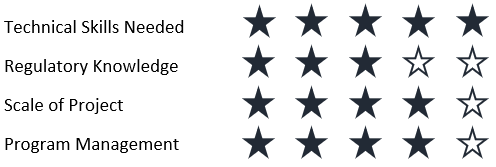Engagement Summary
In 2021, a leading global bank engaged Monticello Consulting Group (Monticello) to support a bank-wide remediation effort surrounding its data standardization process. The goal of the remediation program was to improve the bank’s data quality, data governance, and internal controls, ensuring operational resilience and regulatory compliance.
Monticello responded to the client’s needs by setting up a remediation program governance structure to better facilitate program meetings, drive alignment, manage milestones, forecast resource allocation, and track deliverables. Monticello also helped to design and implement a comprehensive Data Operating Model. The model has three activity groups and 10 steps: Consumer Activities (steps 1-4), Provider Activities (steps 5-9), and Consumption of Data Requirements (step 10).
Case Study Detail
PROJECT BACKGROUND
Our client set up a risk remediation program in direct response to data governance and internal control gaps found in its systems and operations. Several stakeholder groups were involved, including Finance, Risk & Controls, Compliance, and HR. Monticello was brought on to assist the Finance group in their response to Phase 1 of the four-phase remediation action plan.
The objectives were to improve data quality & governance and reduce regulatory reporting risks by focusing on known data & system issues, processes and controls surrounding manual adjustments, and end-user computing applications The comprehensive Data Operating Model was created to provide an appropriate level of risk data capture and aggregation on the bank’s balance sheet across their products such as Wholesale Loans, FX Derivatives, Retail Deposits and Branded Cards. It provided a step-by-step process to identify and fix the known systems, data, and operational issues.
ENGAGEMENT OBJECTIVES
Program Management & Governance: Assisted the PMO to engage program stakeholders, manage dependencies and maintain management reports
Facilitated workshops and meetings, driving alignment on milestones and deliverables
Produced weekly status reports, monitored RAID logs, and updated project plan
Maintained a consistent line of communications, ensuring agreements were met for audit review
Packaged deliverables, meeting minutes, approvals, and working group materials for submission to Internal Audit
Resource Management: Created the resource plan to forecast cost, utilization, and headcount on the program
Created resource scenarios and costing models
Forecasted headcount and resource utilization, ensuring a sustainable workload allocation
Provided periodic resources & financial updates to program sponsors
BUSINESS VALUE
As a result of Monticello’s expertise in program and change management, our client saw an improvement in program decision making, stakeholder communications, and adoption of the new Data Operating Model. Most importantly, the client saw a substantial reduction of risk around data transformation, manual touchpoints, adjustments, and reconciliation breaks. This reduction of risk allowed our client to successfully close many data and control gaps.















